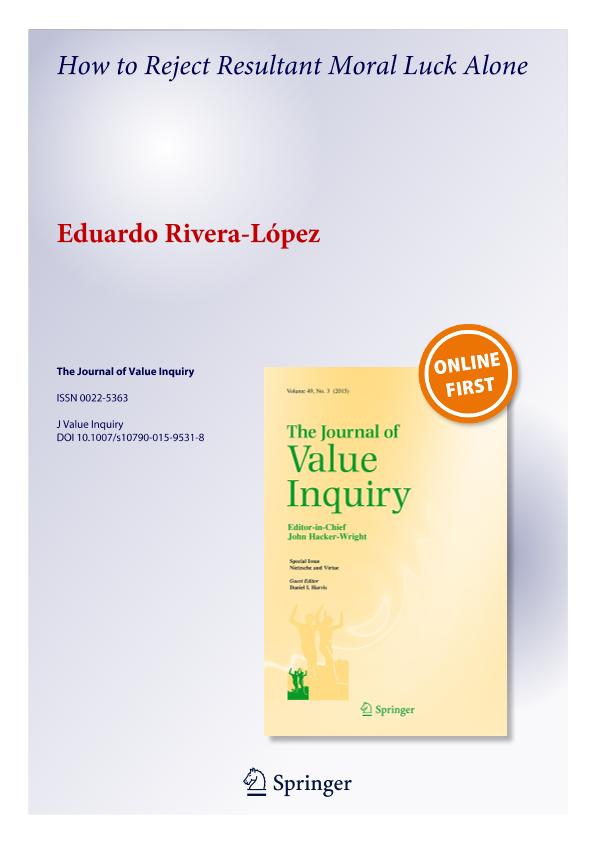Artículo
How to Reject Resultant Moral Luck Alone
Fecha de publicación:
06/2016
Editorial:
Springer
Revista:
The Journal of Value Inquiry
ISSN:
1573-0492
e-ISSN:
0022-5363
Idioma:
Inglés
Tipo de recurso:
Artículo publicado
Clasificación temática:
Resumen
Thomas Nagel famously distinguishes four kinds of moral luck (in which factorsbeyond our control nevertheless have bearing on our moral responsibility).Threeof these are antecedent to our actions: constitutive luck (our character traits), remote causal conditions (being born in a certain time and place, for example), and circumstantial luck (the circumstances in which we act). The remaining kind of moral luck, resultant luck, concerns the results of our actions: the fact that our negligent or intentional actions produce a particular outcome or not often depends on whether some uncontrollable facts occur. Many think that resultant moral luck does not exist, because we cannot be blamed more or less depending on facts that are entirely beyond our control. The problem with this argument is that the other three kinds of moral luck (though I will focus specifically on circumstantial luck) have exactly the same feature: our responsibility also depends on whether certain (antecedent) uncontrollable facts hold. However, rejecting all kinds of moral luck is, as we will see, a bold and implausible move. My goal is to take some initial steps in defense of the motto: circumstantial (and all other kinds of antecedent) moral luck, Yes; resultant moral luck, No. My argument does not amount to proof that resultant moral luck does not exist. I merely try to show that rejecting resultant luck while accepting circumstantial luck is not necessarily inconsistent or unmotivated.
Palabras clave:
MORAL LUCK
,
MORAL RESPONSIBILITY
,
CIRCUMSTANTIAL LUCK
Archivos asociados
Licencia
Identificadores
Colecciones
Articulos(SEDE CENTRAL)
Articulos de SEDE CENTRAL
Articulos de SEDE CENTRAL
Citación
Rivera López, Eduardo Enrique; How to Reject Resultant Moral Luck Alone; Springer; The Journal of Value Inquiry; 50; 2; 6-2016; 415-423
Compartir
Altmétricas




